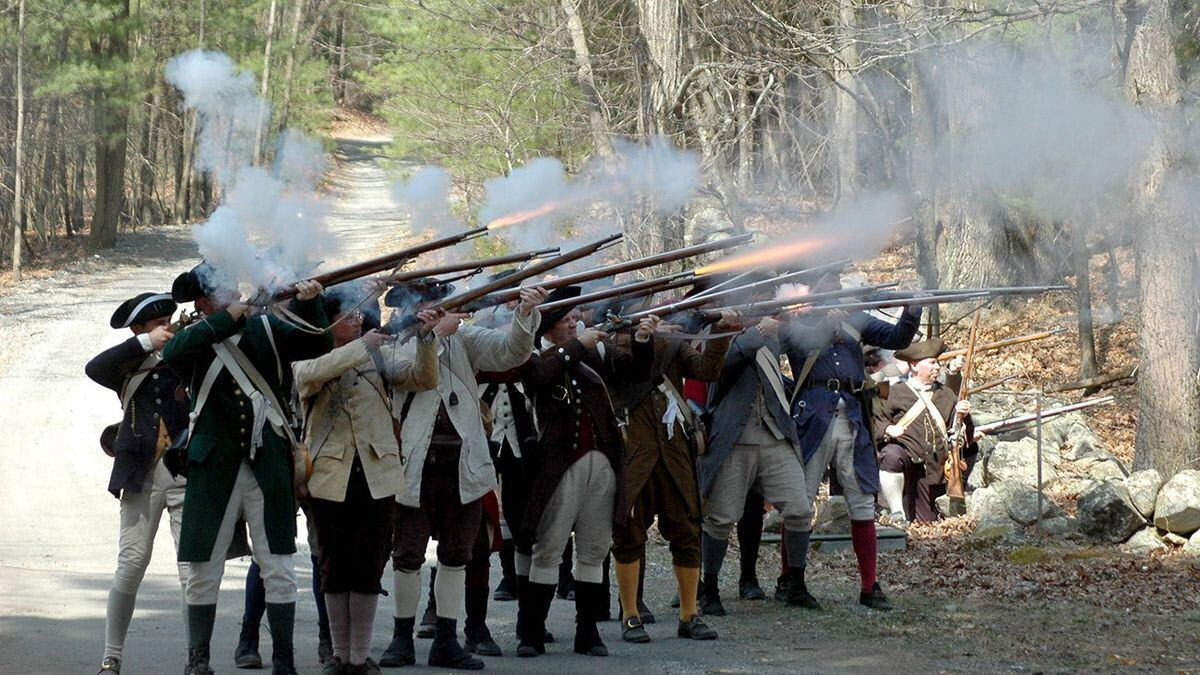
Patriot's Day

Patriot's Day, or Patriots' Day, is a state holiday observed in Massachusetts, Maine, and occasionally in other parts of New England. It commemorates the Battles of Lexington and Concord on April 19, 1775, which marked the beginning of the American Revolutionary War. The holiday is a celebration of American independence, freedom, and the courage of the early patriots who stood against British rule.
Table of Contents
- When is Patriot's Day?
- The History of Patriot's Day?
- What Do People Do on This Day?
- American Revolutionary War (1775–1783)
When is Patriot's Day?
Patriot's Day is observed annually on the third Monday in April, and this date commemorates the anniversary of the Battles of Lexington and Concord on April 19, 1775.
The following is the list of Patriot's Day.
The History of Patriot's Day?
Patriot's Day celebrates the courage and sacrifice of the early American patriots who fought for independence from British rule. Over time, it has become an important state holiday in Massachusetts and Maine.
By 1775, tensions between the American colonies and Great Britain had escalated due to issues such as taxation without representation, the Stamp Act, and the Intolerable Acts. The British government's attempts to assert control over the colonies met with growing resistance, culminating in the rise of militias and revolutionary groups like the Sons of Liberty.
The British Army aimed to seize colonial weapons stockpiled in Concord and arrest revolutionary leaders. At dawn on April 19, 1775, British troops encountered about 77 Minutemen on Lexington Green. The resulting skirmish left eight colonists dead. After moving to Concord, the British faced a larger force of armed colonists at the Old North Bridge. British troops retreated under heavy fire, marking the first American victory of the war.
Massachusetts Governor Frederick T. Greenhalge proclaimed Patriot's Day a state holiday in 1894. The holiday replaced Fast Day, a previous public observance rooted in religious traditions. Maine, originally part of Massachusetts until 1820, also adopted Patriot's Day as a state holiday.
Patriot's Day was originally celebrated on April 19 but was changed to the third Monday in April in 1969 to create a long weekend.
What Do People Do on This Day?
Patriot's Day celebrates the start of the American Revolutionary War with a variety of historical, cultural, and athletic events.
Cities and towns, especially Lexington and Concord, host parades featuring marching bands, floats, colonial reenactors, and local organizations. In some communities, wreath-laying and flag-raising ceremonies honor those who fought and died in the Battles of Lexington and Concord.
Held annually on Patriot's Day since 1897, the Boston Marathon is one of the most prestigious marathons in the world. High school and college athletic events are often scheduled to coincide with the holiday.
Many communities host festivals with food, music, and family-friendly activities, and picnics and outdoor gatherings are common, especially in parks and historical sites.
Some local leaders and historians deliver speeches reflecting on the significance of the holiday and the ideals of freedom and independence.
American Revolutionary War (1775–1783)
The American Revolutionary War, also known as the War of Independence, was a conflict between the Thirteen American Colonies and Great Britain. The war resulted in the establishment of the United States of America as an independent nation and marked a turning point in global history, inspiring other movements for independence and democracy.
The colonies objected to British taxes like the Stamp Act and Tea Act because they had no representation in the British Parliament. Many colonists wanted greater control over their governance and trade, resisting British attempts to assert tighter control.
The conflict began with the Battles of Lexington and Concord in April 1775, where colonial militias confronted British forces. This armed resistance escalated as the colonies united under the leadership of figures like George Washington and adopted the Declaration of Independence on July 4, 1776, asserting their right to self-governance.
Key battles, such as the Battle of Saratoga (1777), proved crucial, drawing France into the war as an ally to the Americans. The war's turning point came at the Battle of Yorktown (1781), where British General Cornwallis surrendered to American and French forces. The war officially ended with the Treaty of Paris (1783), in which Britain recognized U.S. independence and ceded significant territory.
The American Revolutionary War was not just a military victory but also a triumph of ideas. It inspired movements for freedom worldwide and laid the foundation for the United States as a beacon of democracy.